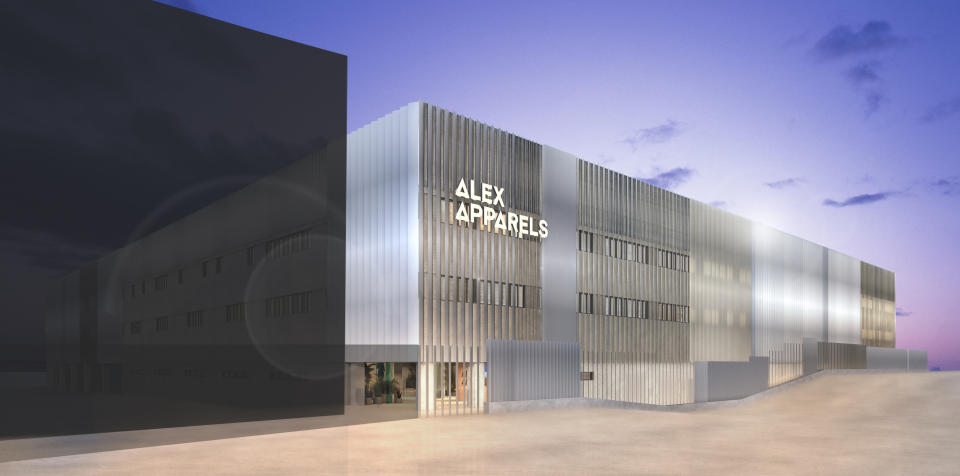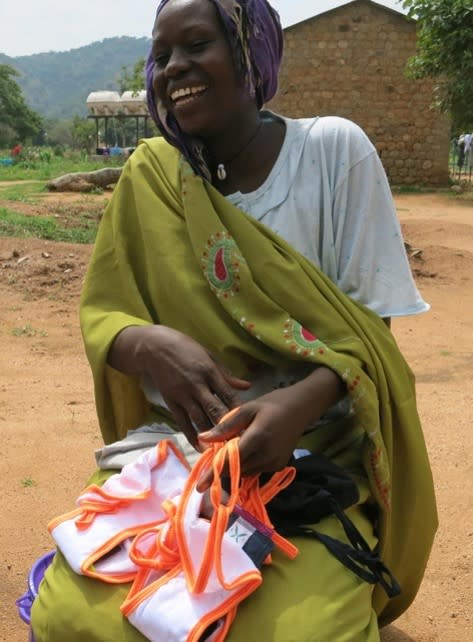At 40, the Alpine Group Sets Its Sustainable Ambitions Higher

MILAN — The Alpine Group, an end-to-end apparel manufacturing company founded in 1982 by brothers Ashok and Lalu Mahtani as a fabric and yarn trading business in Taiwan that currently works with brands such as The North Face, American Eagle Outfitters, Under Armour and Sweaty Betty, among others, is celebrating its 40th anniversary by adding more fuel to the fire.
Building on its sustainably inclined business model, the company — whose network includes factories and facilities in Egypt, the U.S., Bangladesh and Vietnam, as well as Dubai, China, Singapore and Taiwan — is the first fashion manufacturer to embrace the Future-Fit Business Benchmark operated by the U.K.-based Future-Fit organization, which helps companies set concrete goals when it comes to implementing more responsible business practices.
More from WWD
“Sustainability has always been embedded in the DNA of the business; Ashok Mahtani was very much a visionary in seeing fashion as a broken system and he kind of saw the damages that the industry was doing,” said Clare Woodford, global director of impact and marketing, said in an exclusive interview.
“We recognized that we operate in a complex system, which very much calls for systematic change, and collective change can’t just be about us alone. Sustainability is very much a journey and a learning as well, and I think because of our 40-year experience across the whole spectrum of the fashion industry both in innovation and manufacturing, we are positioned well,” she said.
The science-based framework, aligned to the U.N.’s sustainable development goals, has inspired the group’s “Threading the Future” sustainability strategy, which revolves around three pillars focused on material innovation, people empowerment and environmental impact or biodiversity.
Woodford noted that the benchmark provides a “credible destination to aim for…so your business becomes continually geared toward constant improvement and risk mitigation I think, because the goals of the benchmark align with the company’s vision to be socially just, environmentally restorative, and economically inclusive,” she said.
Leading material innovation is the group’s Paradise Textiles division, which has made co-creation part of its business, inviting partner brands as well as a wide network of technologists, scientist and innovators to contribute and develop game-changing materials.
As part of the sustainable strategy, the company — a signatory of the Textile Exchange rPET challenge — has pledged to use 60 percent recycled polyester coming from PET bottles and textile waste by 2023; to fully source its manmade cellulosic fibers from Canopy Green Shirt manufacturers while targeting a more ambitious goal by 2030, whereby 75 percent of yarns would be tree-free and made from agricultural waste or bacterial cellulose rather than wood pulp; to fully source its cotton according to Textile Exchange Sustainable Cotton Challenge principles by 2025, as well as to employ next-gen, water-saving dyeing techniques, including spray dyes, on at least 25 percent of its manufactured goods by 2025.
Paradise Textiles’ head of innovation Lewis Shuler explained that the hub has five focus areas of interest: textile recycling; bio-synthetics fibers; microfiber mitigation, and manufactured cellulosic fibers. He said a good chunk of its innovations have already reached industrial scale and were assessed according to science-based test methods.
“Every material that we design runs through a standardized test method, we capture metrics and we convey data back to brands so for brands coming to us with a current product that they’d like to revamp…we can make variations to it and test those and then deliver those insights back to the brands and say ‘if you make these adjustments, this is how much you can reduce,'” he explained.
Like any business, the group’s partner brands are also under the scrutiny of stakeholders, consumers and employees, faced with internal KPIs to achieve and pressured to do better. According to Woodford, they will benefit from Alpine Group’s sustainable journey, as the supply chain is where significant strides can be made.
“By establishing a clear view of the destination…we can have tremendous influence in how brands get onboard. We’re finding the right solutions to help empower them as well, to embrace a more sustainable model, too,” she said. In Shuler’s view, this is also accelerating the group’s business as brands “can lean on us to get there, and see what the potential path is.”
In addition to spearheading a green transformation of its material supplies, the Alpine Group is addressing the environmental footprints of its facilities, pledging to use only renewable energy by 2030 and set science-based targets to reduce Scope 1, 2 and 3 emissions.
In the year marking its 40th anniversary, the group is adding a new state-of-the-art facility in Egypt, “a strategic operational country of ours for 27 years,” according to Woodford.

Courtesy of Alpine Group
Set to open in the fourth quarter of the year, the complex will operate under the group-owned Alex Apparels garment-maker and 2,000 jobs will be offered to the local community. The factory will boost the company’s manufacturing capacity by 10 million garments a year. Woodford said the facility reflects the group’s green mission in that it is being built using sustainable concrete and other LCA-assessed materials sourced locally. The plant aims to have at least 30 percent of its decision-making roles be occupied by women and it will feature the Experimentation Station enhancing automation and the optimization of resource consumption.
To be sure, social responsibility is also core to the company’s sustainable strategy and is geared toward the empowerment of local communities. Among its key initiatives, the Alpine Group has supported 250,000 women, on top of the 50,000 a year over the next five years it already pledged to, through the Dignity Kits program that provides cotton textile waste to create kits to alleviate period poverty in such countries as Kenya and Iraq.

Courtesy of Alpine Group
In Egypt, the company has also forged ties with the nonprofit organization HERfinance to launch the HERproject, digitizing 90-plus percent of wages within the apparel workforce and empowering production floor team members by spreading financial literacy.
Sign up for WWD's Newsletter. For the latest news, follow us on Twitter, Facebook, and Instagram.

